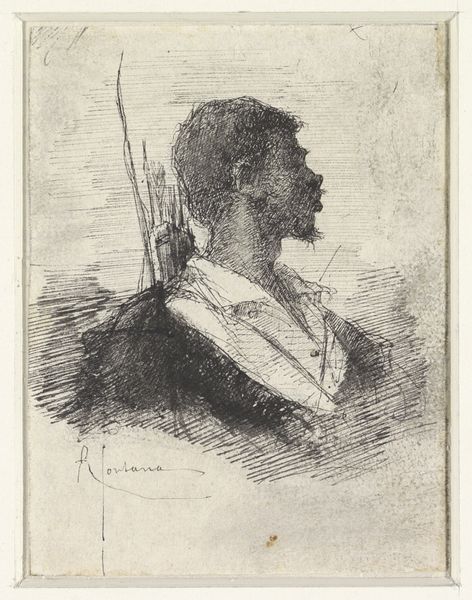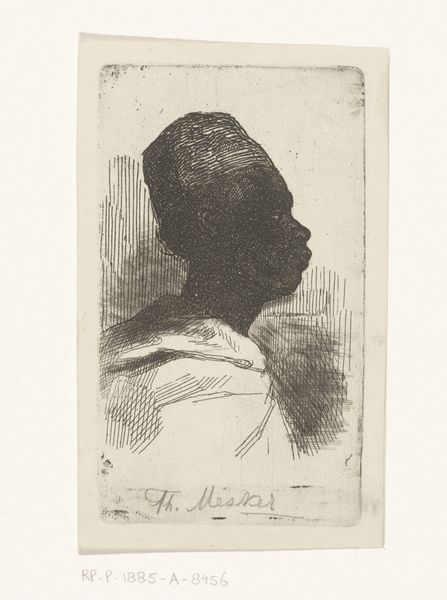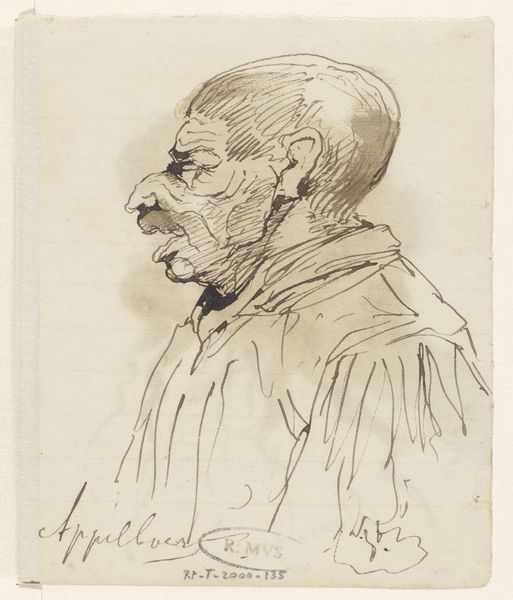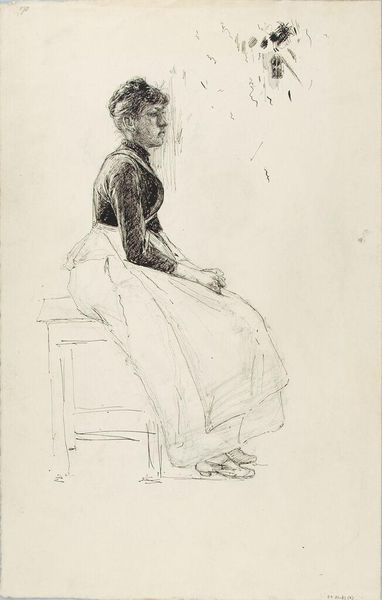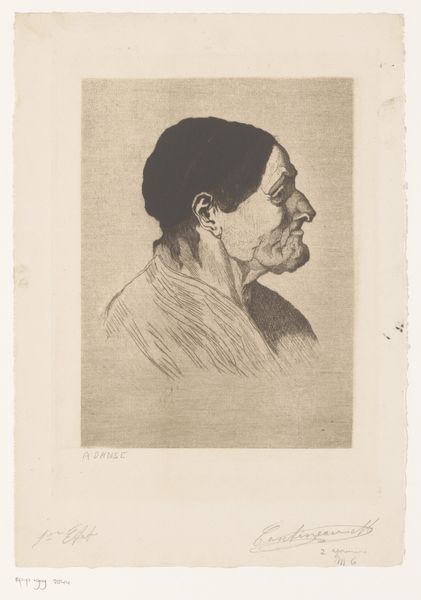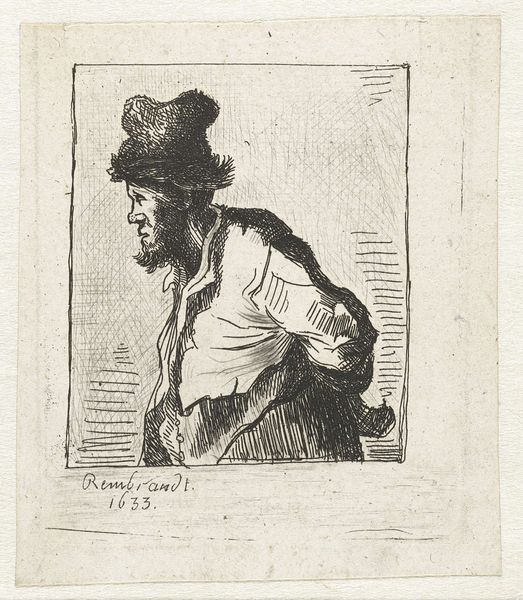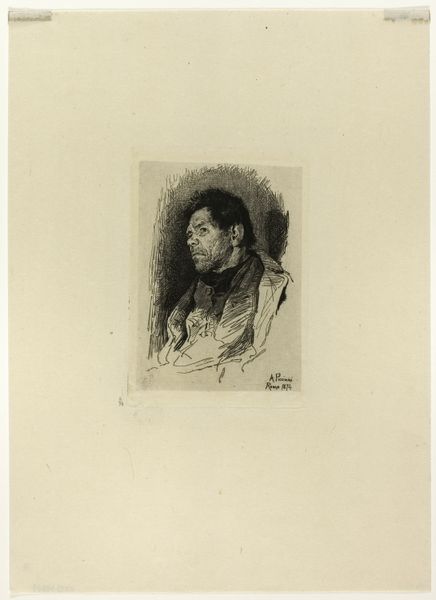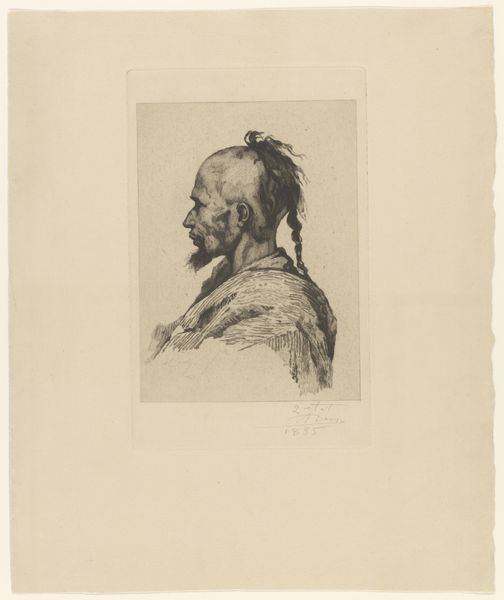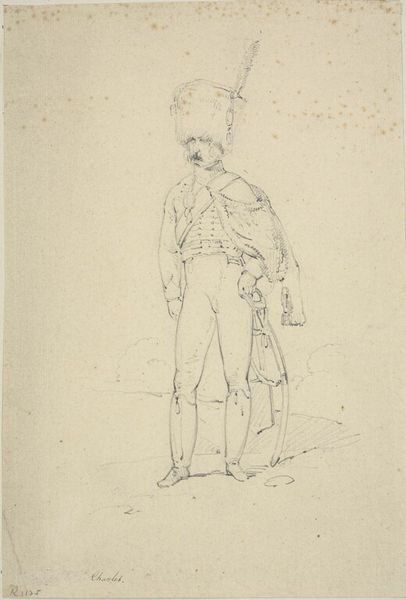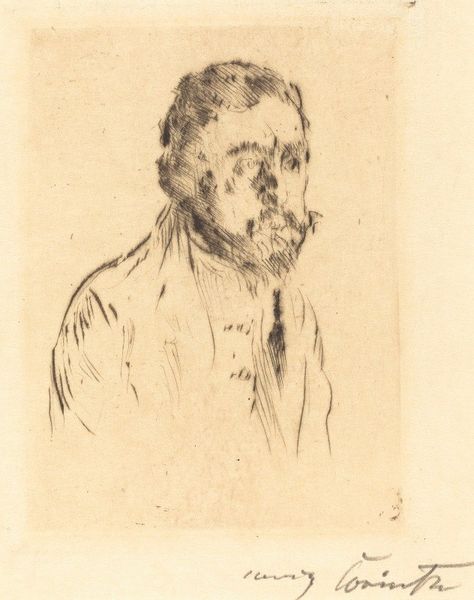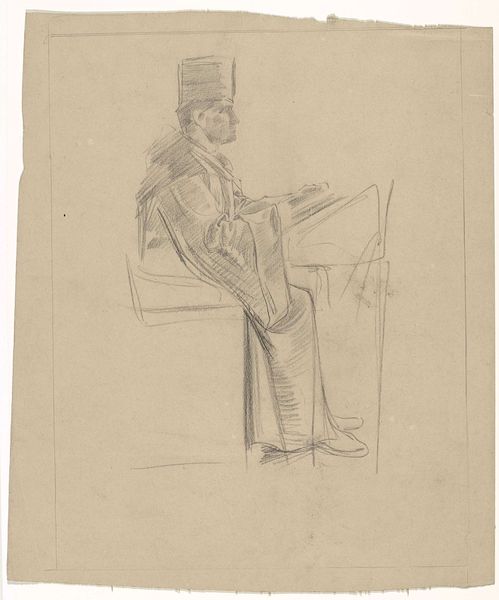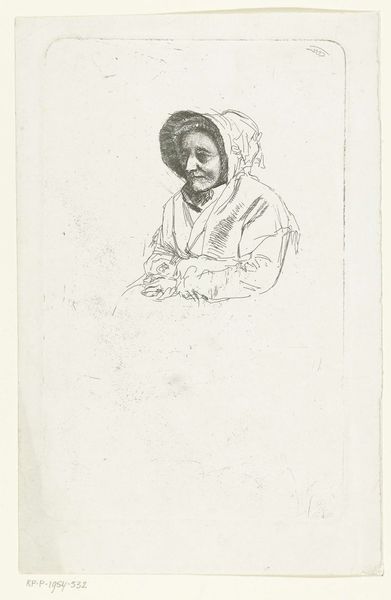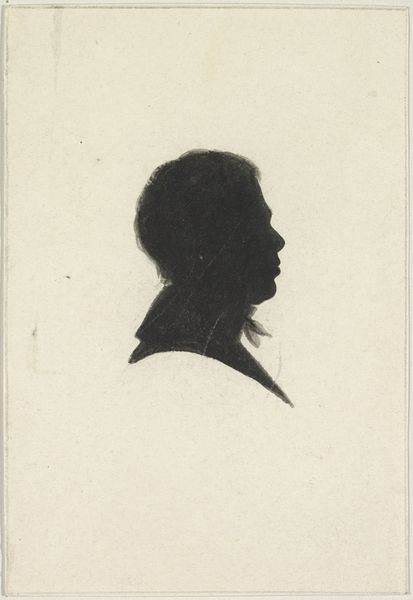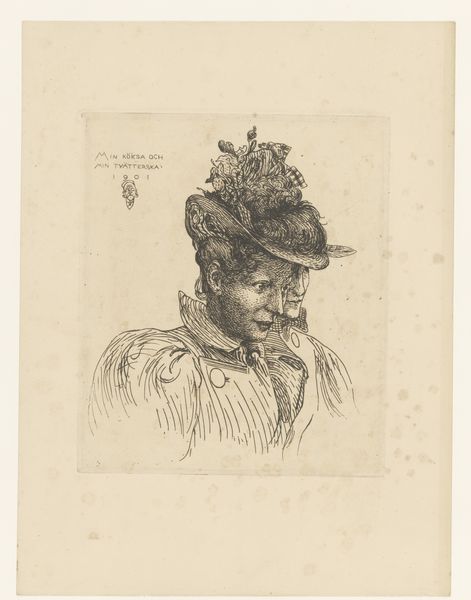
drawing, pencil
#
portrait
#
african-art
#
drawing
#
amateur sketch
#
light pencil work
#
quirky sketch
#
pencil sketch
#
figuration
#
personal sketchbook
#
idea generation sketch
#
sketchwork
#
pencil
#
line
#
sketchbook drawing
#
pencil work
#
history-painting
#
sketchbook art
Dimensions: height 183 mm, width 147 mm
Copyright: Rijks Museum: Open Domain
Editor: Here we have "Zulu en een stoel" - Zulu and a chair – a pencil drawing attributed to Johannes Abraham Mondt, created sometime between 1869 and 1941. It has this immediate sense of being an unfinished study. What do you see in a sketch like this? Curator: The informality is precisely where its historical interest lies. The sketch aesthetic invites us to consider the gaze of the European artist toward the racialized "other," a theme interwoven within the socio-political context of colonial history. Consider the casualness with which Mondt pairs a man, identified as Zulu, with an empty chair. Editor: So, the positioning isn't accidental, you think? Curator: Not entirely. How does the visual language, this juxtaposition, contribute to the narrative? The presence of the chair, sketched but vacant, alongside the detailed portrait raises questions about power dynamics and representation within ethnographic studies of the period. Whose chair is it? Who gets to sit, and who is observed? Editor: It's interesting to think of this as a comment on the observer versus the observed. I initially saw it as a simple study of a man. Curator: And that initial reading is valid! But historical analysis pushes us to consider how images participate in larger conversations about race, power, and the construction of identity, especially within a colonial context. Does the sketch normalize or question that context? That is something to consider. Editor: So, beyond being just a portrait, it's a historical document reflecting on cultural power dynamics. Thanks, that’s really enlightening. Curator: Exactly! And hopefully, a reminder that even seemingly simple sketches can reveal complex histories and societal structures when examined critically.
Comments
No comments
Be the first to comment and join the conversation on the ultimate creative platform.
